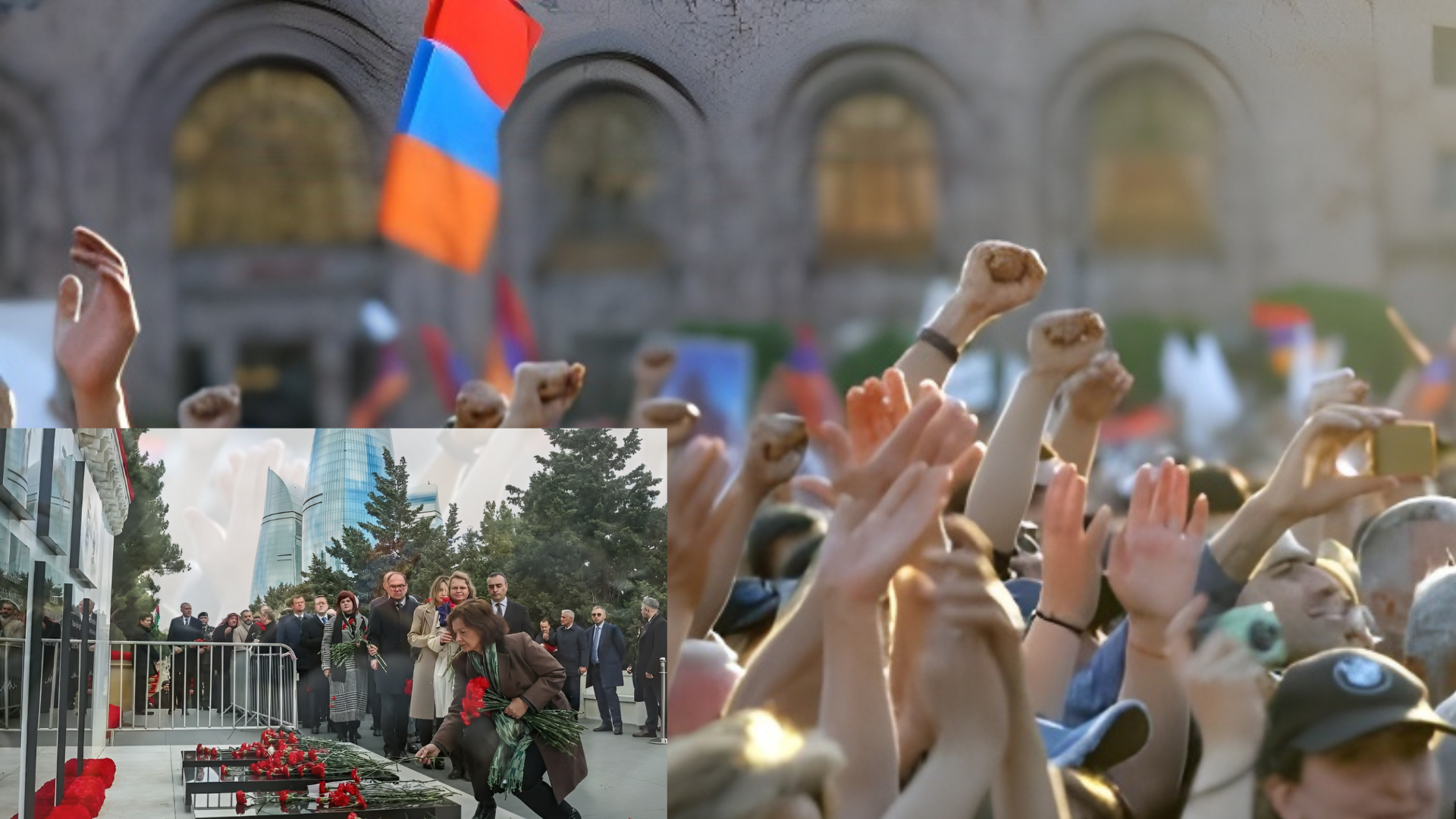French diplomat's visit to Azerbaijan's Alley of Martyrs jolts Armenian media with spark of controversy

French Ambassador Anne Boillon’s visit to the Alley of Martyrs in Baku, marking the 35th anniversary of the January 20 tragedy, has ignited controversy within Armenian media circles. An article published by an Armenian online outlet has gone so far as to question her motives, alleging that her actions signal disrespect for Armenia’s narrative. But why would a gesture of humanity and diplomacy provoke such a reaction?
It is no secret that political tensions between France and Azerbaijan have existed for some time. Baku has openly criticized France’s actions that contradict Azerbaijan’s political and economic interests. Be it the French government’s continued arms supplies to Armenia, its lingering neo-colonial policies toward small island nations, or its public rhetoric against Azerbaijan, Baku has not hesitated to take a firm stance. Despite these tensions, both countries maintain a functioning diplomatic relationship. Ambassador Boillon’s visit to honour the memory of Azerbaijan’s martyrs exemplifies this relationship. Her decision to lay carnations on this solemn day reflects a gesture of profound respect for the Azerbaijani people, shared by many diplomats who joined her in commemorating the tragedy.
The Armenian media, however, has portrayed this act as an affront to their narrative, conveniently disregarding the true significance of January 20. The tragedy represents Azerbaijan’s struggle against decades of Soviet oppression—a dark chapter that witnessed the loss of innocent lives in the pursuit of freedom and independence. For the Armenian media to criticize France for sharing in Azerbaijan’s grief is not only disingenuous but also indicative of a broader issue: an unwillingness to acknowledge that acts of solidarity can exist beyond political divides.
What makes this reaction even more telling is its attempt to conflate history with diplomacy. Ambassador Boillon’s visit was not a political statement but a tribute to human suffering and resilience. Yet, Armenian media twisted this gesture into a narrative of betrayal, reflecting a discomfort with any form of recognition given to Azerbaijan’s tragedies. This distortion begs the question: Is the Armenian media truly afraid of diplomacy that humanizes Azerbaijan?
Interestingly, the article also speculates about behind-the-scenes negotiations between France and Azerbaijan, citing comments made by Azerbaijani President Ilham Aliyev about potential diplomatic overtures from Paris. While this claim seems speculative at best, its inclusion reveals a deeper concern. Perhaps the Armenian media fears that gestures of goodwill, like Boillon’s visit, signal a shift in France’s approach toward Azerbaijan—one that could challenge the Armenian narrative and disrupt its long-held monopoly over Western sympathy.
Ultimately, the Armenian media’s reaction speaks volumes about its priorities. Instead of embracing gestures of humanity and mutual respect, it resorts to distorting historical events and diplomatic actions for political gain. By doing so, it risks isolating itself further in an increasingly interconnected world where diplomacy and dialogue are essential for resolving long-standing disputes.
Rather than criticizing acts of solidarity, Armenia and its media would do well to reflect on the importance of fostering mutual respect. Ambassador Boillon’s visit was not an act of betrayal—it was a reminder that diplomacy, even amid tensions, can serve as a bridge for understanding. To reject this is to deny the very essence of what it means to engage in constructive international relations.
Here we are to serve you with news right now. It does not cost much, but worth your attention.
Choose to support open, independent, quality journalism and subscribe on a monthly basis.
By subscribing to our online newspaper, you can have full digital access to all news, analysis, and much more.
You can also follow AzerNEWS on Twitter @AzerNewsAz or Facebook @AzerNewsNewspaper
Thank you!

